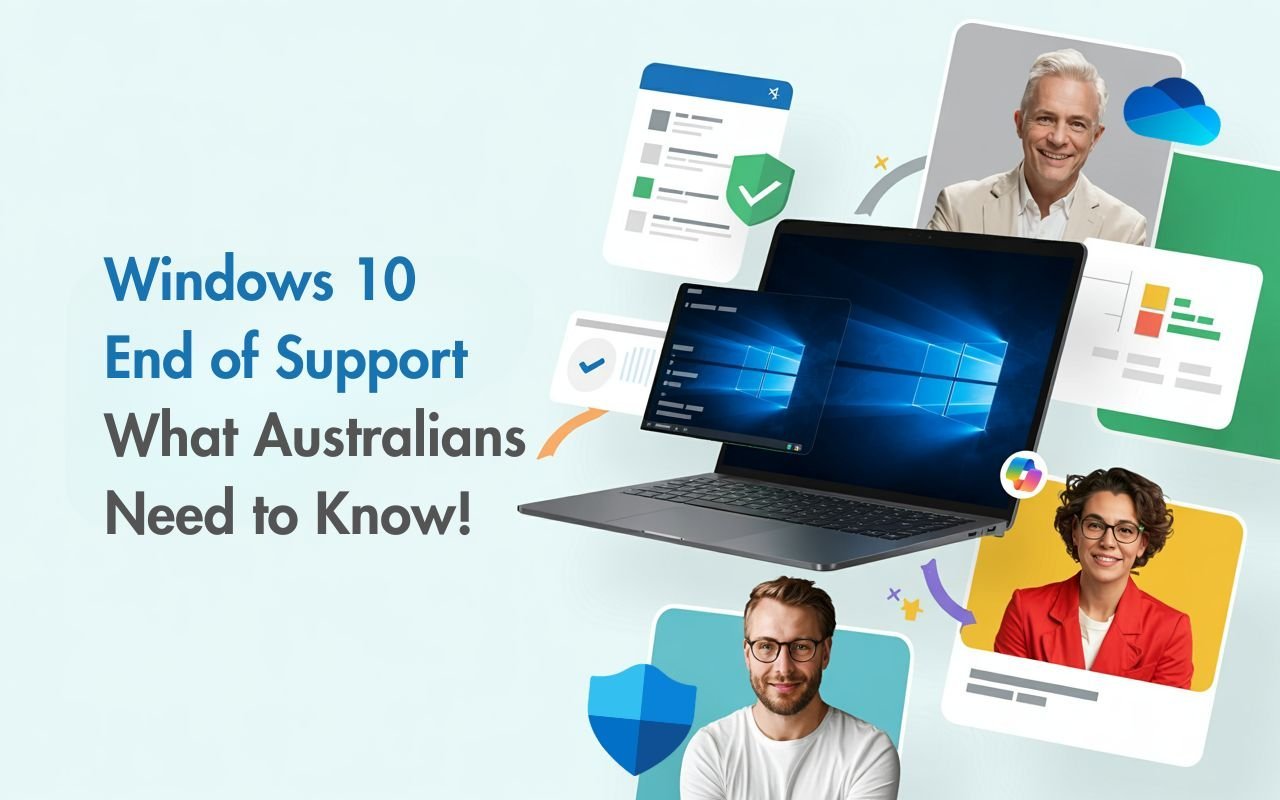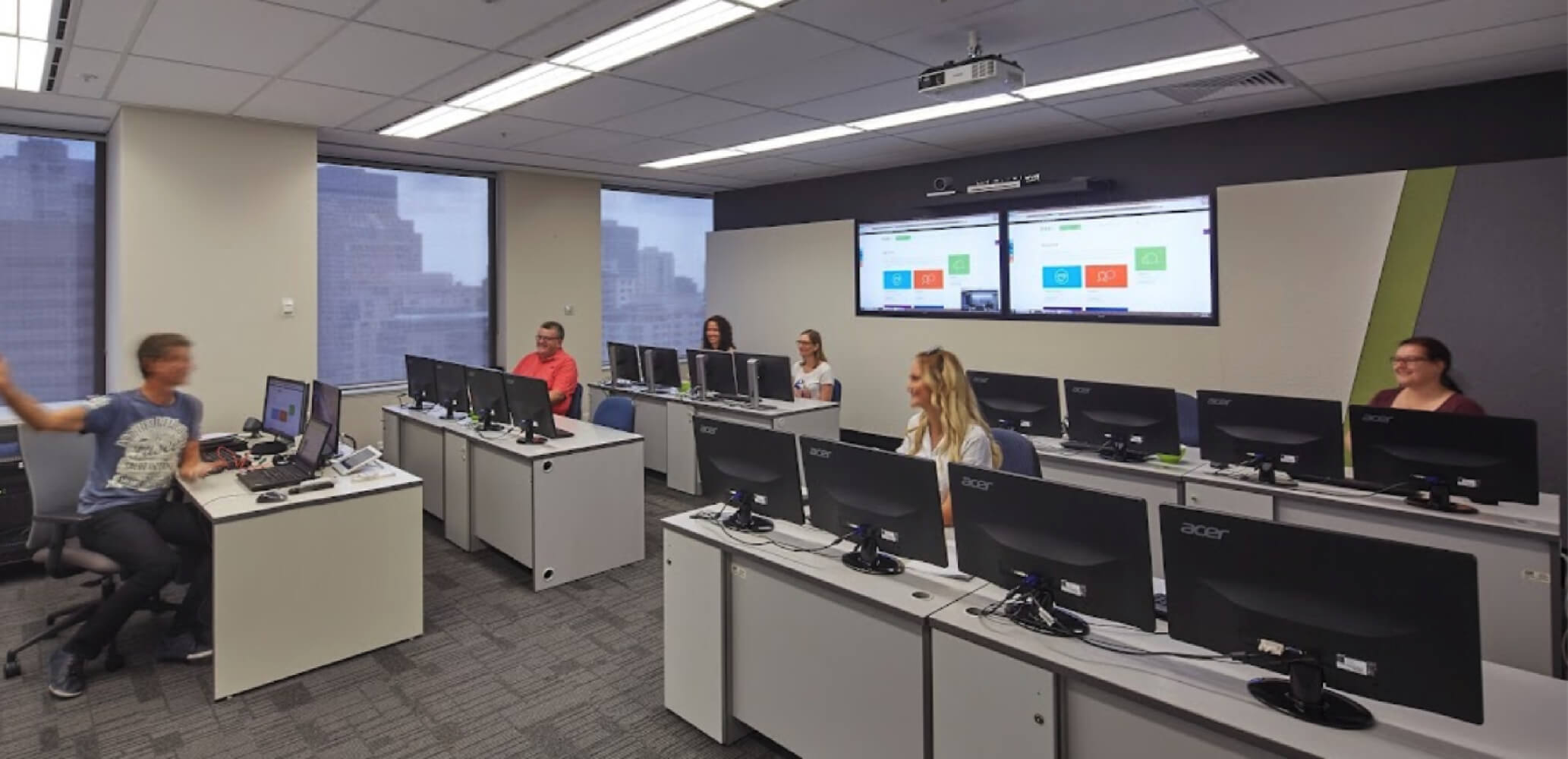Windows 10 Support Ends 14 October 2025 (Australia)
Security, compliance, migration timelines, risks, and Nexacu’s Windows 11 end-user training for Australian organisations
From consumers to government agencies, the end of Windows 10 support has real-world consequences in Australia. Once support stops, devices won’t receive security patches or feature updates raising risk, eroding compatibility, and impacting productivity.
For organisations, this is not only a security matter; it’s also about compliance, continuity, and change management. Nexacu helps teams transition smoothly with targeted Windows 11 end-user training so staff stay secure, confident, and productive. Sources: Microsoft End of Support, Windows 10 FAQ, Dell EOS Update, CyberCX guidance, Netcomp explainer, EFEX overview, Nexacu, Windows 11 End-User Training.
Executive key takeaways
- • Deadline: Windows 10 support ends on 14 October 2025 no more security or feature updates (Microsoft).
- • ESU is temporary: Paid Extended Security Updates may extend security fixes to Oct 2026 (security-only; no feature/compatibility updates) see Windows 10 FAQ.
- • Compliance risk: Unsupported OS increases exposure under Australian privacy and cyber frameworks (see CyberCX).
- • Plan now: Assess hardware compatibility, modernise apps, and train users to reduce helpdesk load.
- • Upskilling matters: Nexacu’s Windows 11 training accelerates adoption and cuts early-stage disruption (course details).
Start learning: Windows 11 End-User courses
Jump to: What “end of support” means • Key dates & Microsoft stance • Impacts by user group • Risks • Case study • Did you know? • Tips & strategies • Nexacu’s role • Training benefits • Adoption snapshot • FAQs • Final checklist
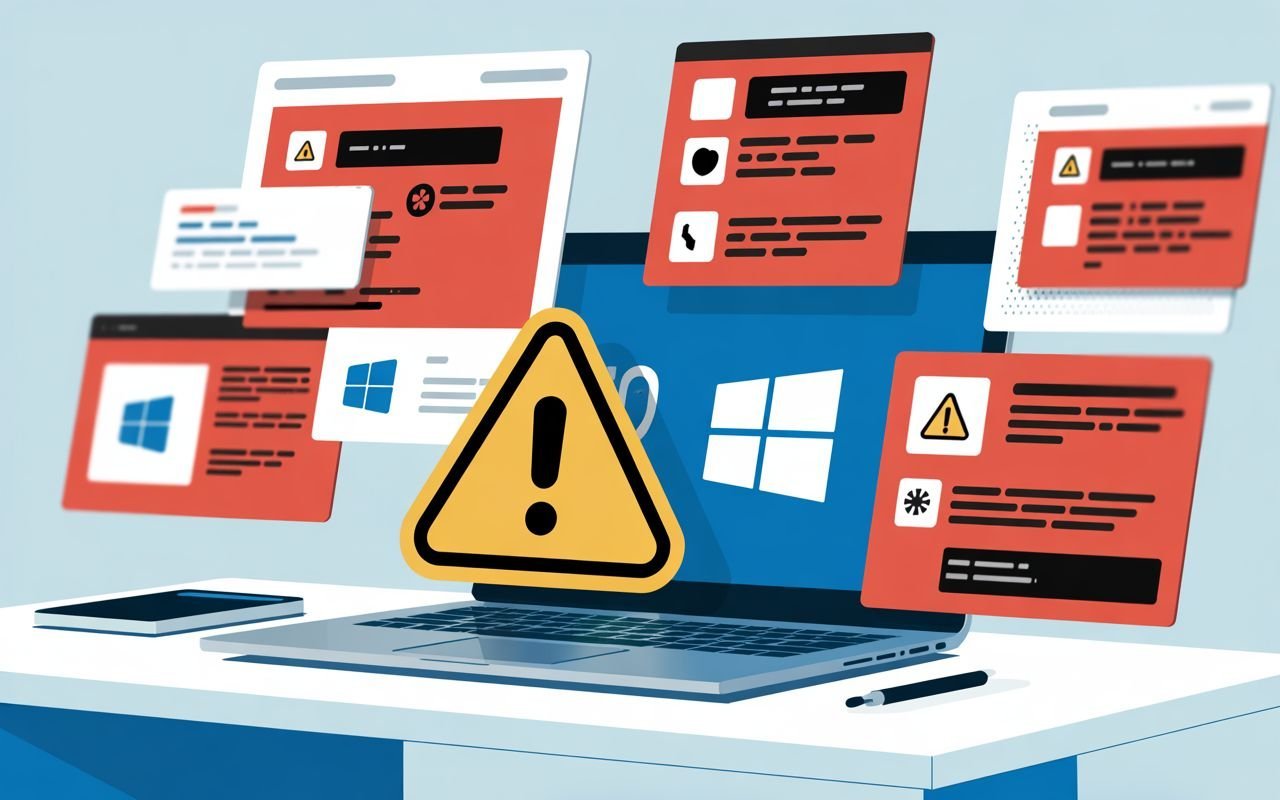
What does Windows 10 end of support mean?
After 14 October 2025, Microsoft stops issuing security fixes, feature updates, and tech support for Windows 10. Devices keep running, but new vulnerabilities won’t be patched, and app/peripheral compatibility will degrade. Some organisations can purchase Extended Security Updates (ESU) for a limited time (security updates only). Learn more at Microsoft End of Support, Windows 10 FAQ, and Dell’s EOS advisory.
Heads-up: ESU covers security updates only no features or compatibility fixes (see FAQ).
Key dates and Microsoft’s position
- End of support: 14 October 2025 (AU & global) see Microsoft.
- ESU: Paid, per-device security updates only, potentially available up to October 2026 see FAQ.
- Microsoft’s guidance: Upgrade to Windows 11 or refresh hardware see Windows 11 Adoption.
Also helpful: CyberCX, Netcomp.

Impacts for different Australian user groups
Australian consumers
Rising exposure to malware and scams; eventual incompatibility with new apps and devices particularly risky for households, parents, and seniors. Read: Netcomp, EFEX.
Business corporates
Compliance and insurance concerns; growing risk surface; potential Microsoft 365 feature gaps; and migration delays that drive downtime and reputational risk. See: CyberCX, ADITS, PCMag.
Government & public sector
Security and compliance are paramount; unsupported OS can breach standards and jeopardise sensitive citizen data. Context: CyberCX.
Personal users
Students, freelancers, and community devices have the same risks but less IT support making timely migration essential. Overview: LMC.
Risks: security, compliance, productivity, and device longevity
- Security: No patches for new vulnerabilities.
- Compliance: Harder to meet AU privacy/cyber standards.
- Productivity: Loss of new features and compatibility fixes.
- Compatibility: Vendors focus on Windows 11 first.
- Cost: ESU prolongs risk and diverts funds from innovation.
More reading: VITG on EOS risks, Netcomp.
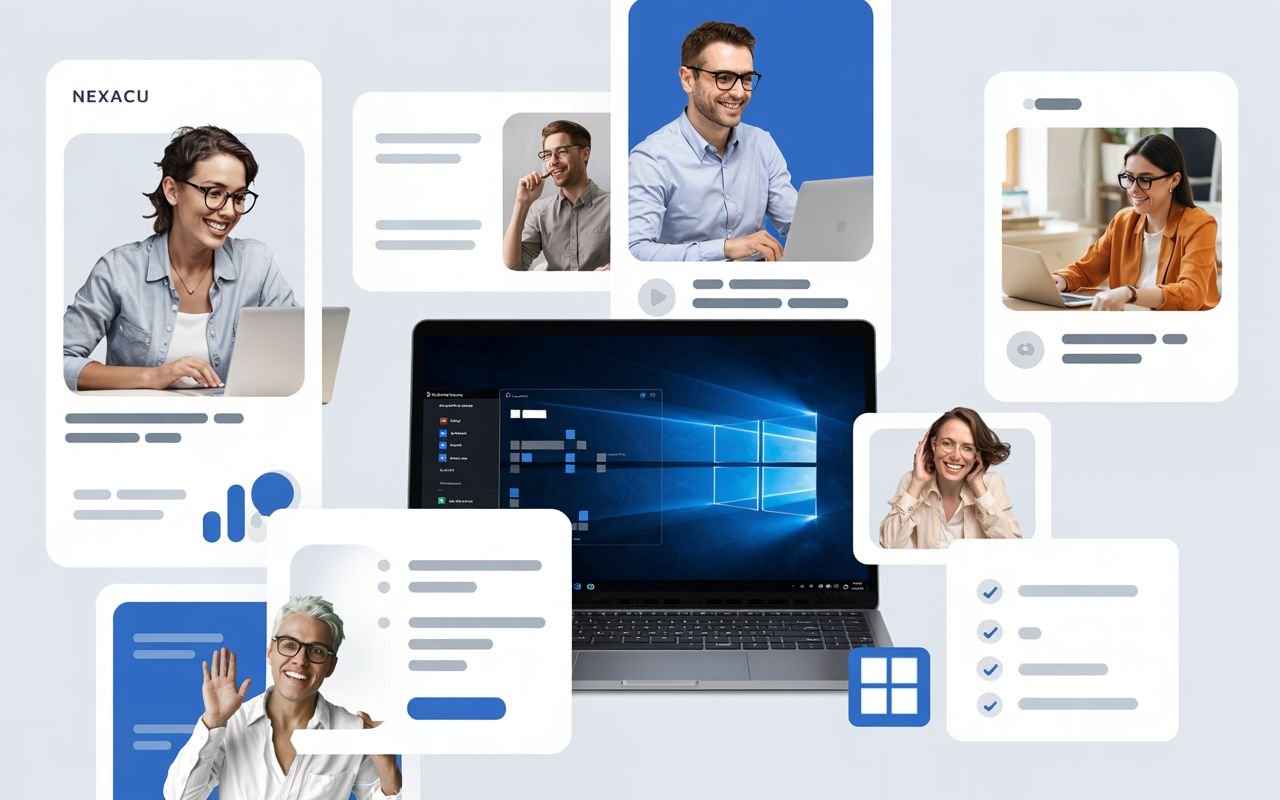
Case study: Sydney-based SME migration
Background: “GreenVista Finance” (38 staff) had ~60% of devices on Windows 10 mid-2025.
- Challenges: Legacy payroll/CRM on Win10; mixed digital literacy; insurer signalling premium hike post-Oct 2025.
- Actions: Asset audit; phased device refresh; backups; Nexacu training on Windows 11 security, UX, and M365 collaboration.
- Results: 97% reported smooth transition; helpdesk tickets down 40% in first month.
Takeaway: Early planning + quality user training reduces disruption and speeds adoption. Training references: Nexacu, Windows 11 End-User Training.
Did you know?
- Over 20% of devices globally were still on Windows 10 as of Sept 2025; the share is higher for small AU businesses (see industry summaries such as Netcomp).
- Running unsupported software can affect some SMEs’ cyber insurance coverage (see VITG).
- Certain AU grants/contracts require compliant, supported IT Windows 10 may disqualify applicants (context: CyberCX).
- ESU is billed per device fleet costs add up quickly (see FAQ).
Tips, tricks, and strategies
- Run PC Health Check for hardware eligibility.
- Plan staged replacements for ineligible devices and back up via OneDrive (see FAQ).
- Modernise critical apps and confirm Windows 11 support.
- Start staff upskilling early with instructor-led training (remote or onsite) via Nexacu.
- Pilot with a small group before broader rollout; avoid peak periods.
- If Win10 must remain briefly, purchase ESU and harden endpoints.
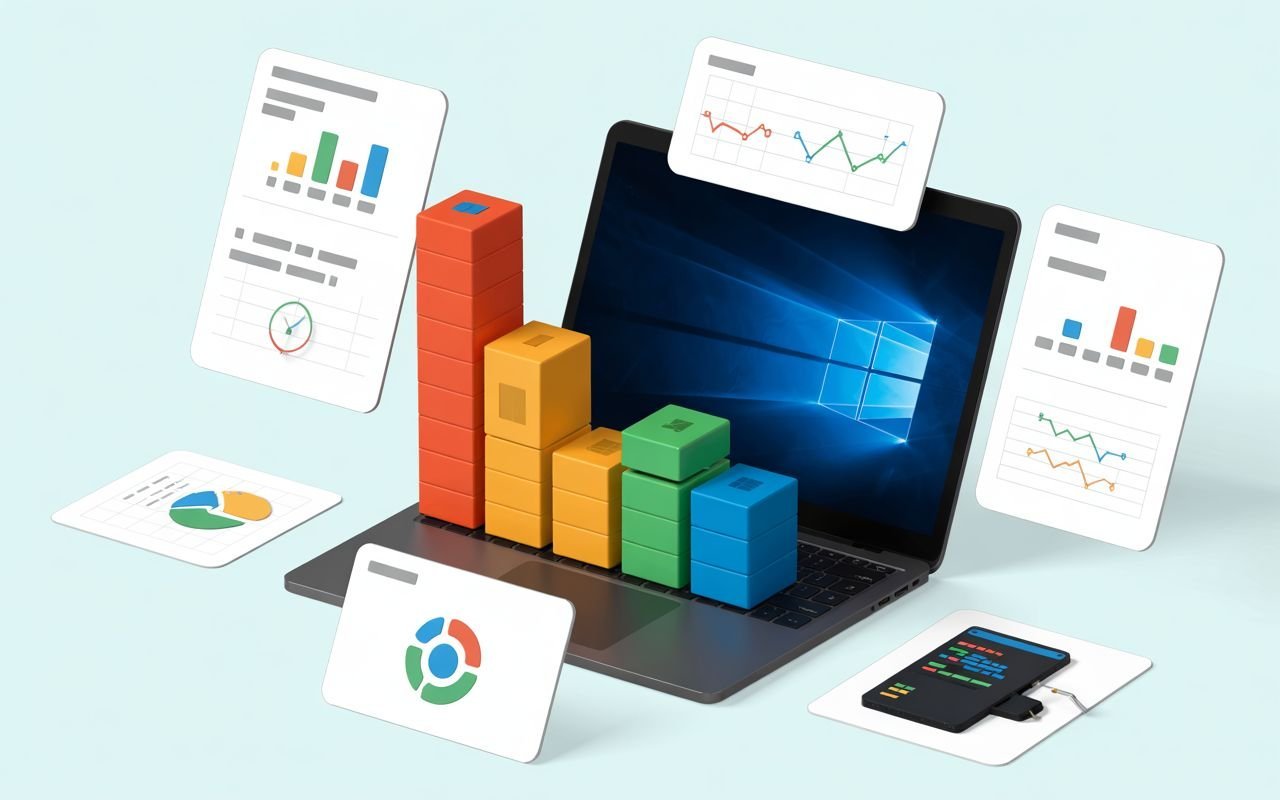
Nexacu’s role: Windows 11 confidence at scale
Nexacu delivers instructor-led, scenario-based Windows 11 training to reduce change friction and lift productivity across Australian teams. Explore Windows 11 End-User Training.
- Personalisation and new interface navigation
- Security features and safe daily practices
- Virtual desktops and multi-device workflows
- Microsoft 365 collaboration tools
- Accessibility and inclusive features
Browse schedules: Windows 11 End-User Training
How Windows 11 training benefits your organisation
- Reduce helpdesk demand: Fewer “how do I…?” tickets.
- Boost productivity: Better search, taskbar, and accessibility features.
- Manage change: Structured learning eases adoption.
- Stay compliant: Users understand security features and policies.
- Enable hybrid work: Confident, modern workflows.
Frequently asked questions
Can I use Windows 10 after October 2025?
Yes, but you won’t receive security updates or support, so risk increases over time (see Windows 10 FAQ).
What if my organisation stays on Windows 10?
Expect higher security/compliance risks and potential app/feature loss, including with Microsoft 365 (see CyberCX and ADITS).
Is ESU a permanent fix?
No. ESU only adds temporary security updates and is billed per device (see FAQ).
My device isn’t Windows 11 compatible options?
Plan upgrades/replacements and secure data via cloud backups before migration (see Dell EOS and FAQ).
How do we prepare users?
Invest in structured, scenario-based training to speed adoption and reduce disruption see Nexacu’s Windows 11 training.
Final checklist & actions
- Check eligibility with PC Health Check.
- Back up critical files to OneDrive before upgrading (see Windows 10 FAQ).
- Schedule migration well before October 2025.
- Use ESU only as a short-term bridge and harden endpoints.
- Train staff early: book Nexacu Windows 11 training.
- Update policies, vendor agreements, and cyber insurance requirements.
